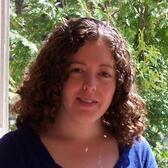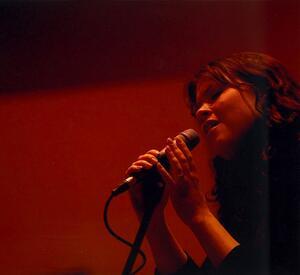Where She's Coming From
Earlier this week, Neshama Carlebach made waves when she announced at the URJ Biennial Conference in San Diego that she was leaving the Orthodox Judaism of her childhood for the more welcoming Reform Movement. Describing herself as “a refugee from Orthodoxy for the past couple of decades,” Carlebach spoke honestly about the love for religion her father, Shlomo Carlebach, instilled in her and the pain she had felt when members of the Orthodox community lashed out against her attempts to share her talents with them through prayer and song. By joining the Reform Movement, Carlebach felt she was coming home to a place where people shared her exuberant love of Judaism and welcomed her voice.
I’m bracing myself for the inevitable storm of essays about Neshama Carlebach’s choice and what it says about Orthodoxy. It’s easy to read her decision to “make aliyah” to Reform Judaism as a triumph of the liberal values and inclusivity of the Reform Movement over the ingrained sexism of Orthodoxy. But the truth is that both movements are struggling with how to include women and a wider range of voices.
Just as the URJ Conference where Carlebach made her announcement was drawing to a close, the AJS Conference, attended by close to 1,000 Jewish studies scholars from around the world, was beginning. One surprising and welcome event at the conference was a beautiful tribute to Debbie Friedman and her profound impact on the world of Jewish music. David Ellenson, outgoing president of HUC-JIR, praised the ways in which Friedman’s music had enriched Jewish liturgy and synagogue worship, but he also noted the strong opposition of many cantors to the renaming of the cantorial school after Debbie Friedman. Other panelists amplified on the ways in which, for most of her career, Friedman was ignored and marginalized by the establishment, even within the Reform Movement, despite the powerful impact she had on those sitting in the pews.
By contrast, at the JOFA Conference earlier this month, Orthodox feminists from all over the movement met members of a Hasidic women’s rock band, listened to advocates from Women of the Wall, and attended panels with names like “Here, Queer, and Machmir: Orthodox Life in the LGBT Community.” While there are certainly tensions in the Orthodox community between those who are growing more liberal and inclusive and those who are becoming stricter in their practice and outlook, there is also recognition that the community needs to find ways to welcome women’s energy and women’s contributions or risk losing more bright, passionate members like Neshama Carlebach who feel there isn’t a place for them in Orthodoxy.
It’s dangerous to make Orthodoxy a whipping boy for sexism in the Jewish community. It ignores Orthodox efforts to include women as members and leaders within the constraints of their interpretation of halakhah. And it encourages those of us in other movements to become complacent—if they’re sexist and we’re progressive, we don’t have to look at how few women hold leadership positions in our movements or how, when money is tight, women rabbis are less likely to find and keep jobs than their male colleagues. I’m glad Neshama Carlebach has found a spiritual home where she feels welcome. But I hope the takeaway for us is that each of the movements needs to continue their work to include and honor the contributions of women, of gays, of intermarrieds, because we will surely be impoverished by the loss of their talents and their passion.








Beautifully said -- yasher koach.
In reply to <p>Beautifully said -- yasher by Laura Gold
Thank you so much!